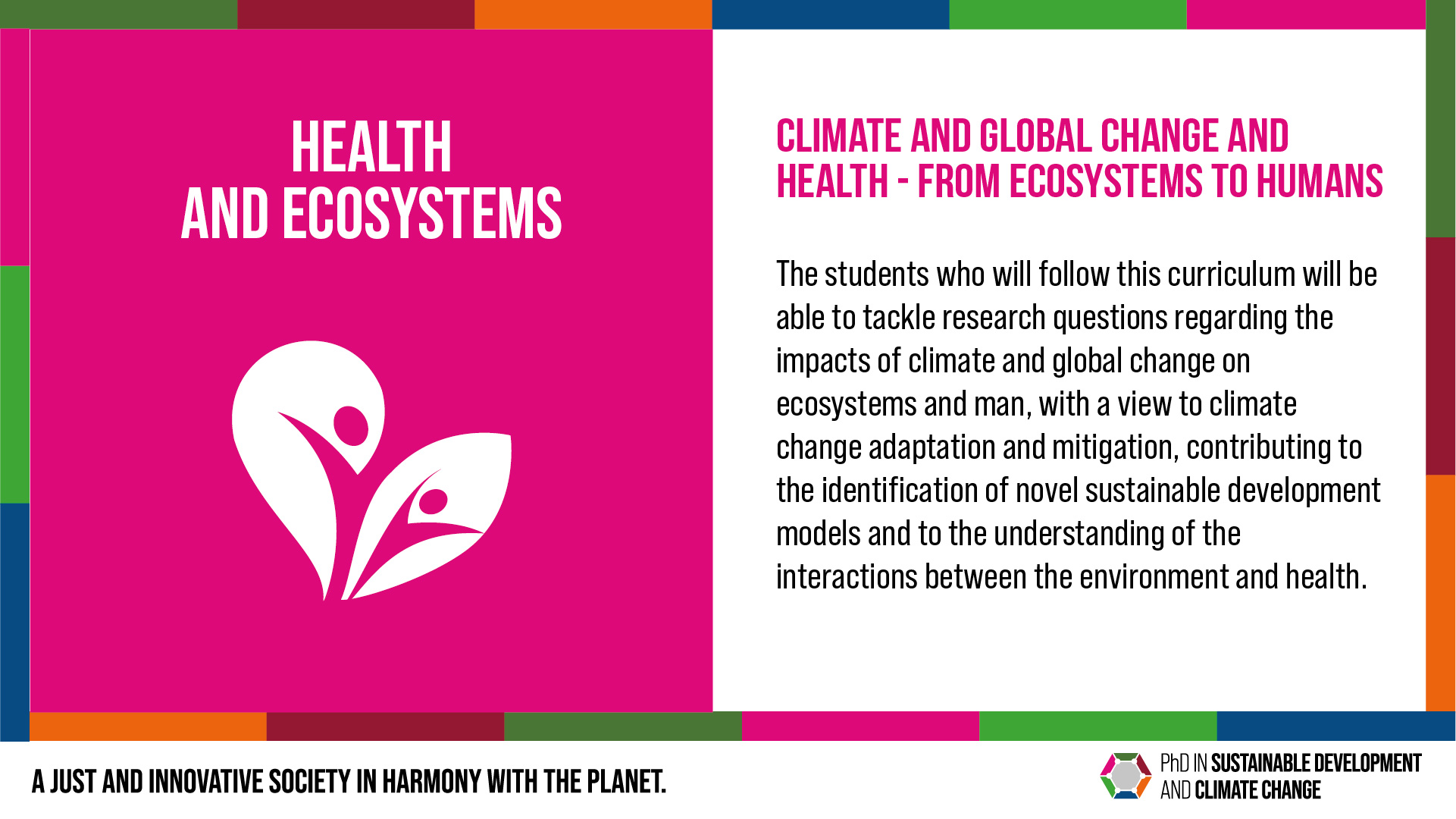6 - Health and Ecosystems
Testo
The students who will follow this curriculum will be able to tackle research questions regarding the impacts of climate and global change on ecosystems and man, with a view to climate change adaptation and mitigation, contributing to the identification of novel sustainable development models and to the understanding of the interactions between the environment and health.
The training objective in this context is two-pronged and includes:
- the study of the impacts of climate change on the structure, function and health of the biotic and abiotic components of ecosystems at different spatio-temporal scales in various environmental contexts
- the study of the human health risks associated with synergies between environmental change (including various pollution types) and/or climate and global change, paying attention to the effective social and economic dynamics at present and in the future in the context of sustainable development.
Research activities comprise:
- implementation of protocols for the measurement and monitoring of climate change and its impacts on ecosystems, including through the use of modeling approaches;
- identification and evaluation of possible climate change adaptation and mitigation strategies, including ecological restoration practices and even biotechnological approaches towards the curbing of greenhouse gas levels with a view to mitigation;
- analysis of vulnerability and adaptation to climate change of structural, functional and compositional traits characterizing biota and ecosystem processes (including biogeochemical cycles);
- study of the impacts that climate and global change has on ecosystems of extreme environments and feedbacks;
- analysis of the determinants of environmental pressures that produce actual or potential impacts on the biodiversity attributes and the ecosystem functions that are vulnerable to climate change;
- identification of the ATC (Anthropogenic Threat Complexes) and their actual or potential impact on ecosystem alterations induced by climate change in different environmental contexts;
- analysis of the impact that climate change and the related adaptation and/or mitigation policies have on human health through the associated ecosystem impacts, also via modeling the diffusion of viral, bacterial, and parasitic infections, including zoonoses, and their influence on the related control and prevention policies.
- study of the risks on animal and human health (in relation to pathology predisposition of the individuals) that are associated with chemical and environmental pollution in the context of climate and global change, with particular attention to the actual and future social and economic dynamics in the context of sustainable development.
- study of solutions for the development of safe and sustainable by design materials and products towards a toxic-free environment taking into account climate and global change.
Testo
![]()
